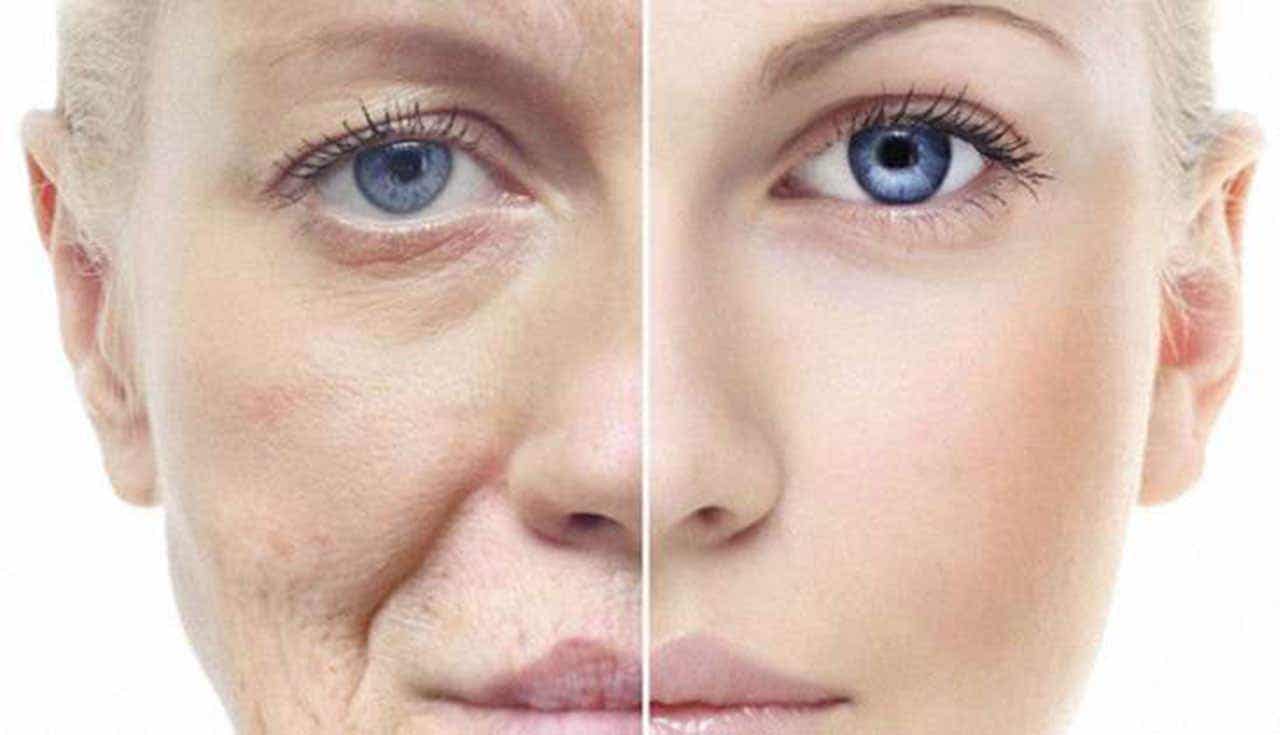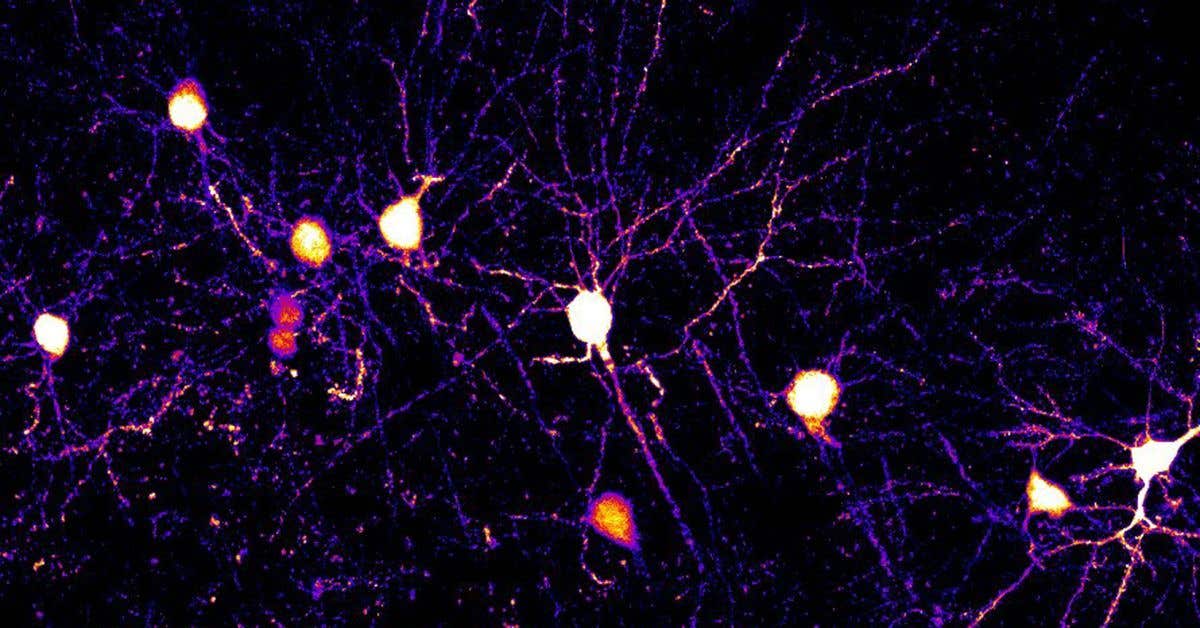Breakthrough research offers new hope for anti-aging therapies
Research could potentially lead to therapies for various degenerative diseases, including cancer, fibrosis, and even cosmetic dermatology.

[Apr. 1, 2023: JJ Shavit, The Brighter Side of News]
Research could potentially lead to new therapies for various degenerative diseases, including cancer, fibrosis, and even cosmetic dermatology. (CREDIT: Creative Commons)
Senescent cells, or aging cells that stop dividing but do not die, are a growing concern as they can accumulate in the body over time and fuel chronic inflammation, which contributes to various degenerative disorders and even cancer. While there have been studies in mice that have shown the elimination of senescent cells from aging tissues can restore tissue balance and lead to an increased healthy lifespan, researchers have been seeking to understand how the body naturally gets rid of these cells.
Now, a team led by investigators at Massachusetts General Hospital (MGH), a founding member of Mass General Brigham (MGB), has made a groundbreaking discovery that the immune response to a virus that is ubiquitously present in human tissues can detect and eliminate senescent cells in the skin. The findings, published in the journal Cell, could potentially lead to new therapies for various degenerative diseases, including cancer, fibrosis, and even cosmetic dermatology.
The study involved analyzing young and old human skin samples to learn more about the clearance of senescent cells in human tissue. The researchers found that old skin had more senescent cells compared to young skin samples. However, in samples from old individuals, the number of senescent cells did not increase as individuals got progressively older, suggesting that some type of mechanism kicks in to keep them in check.
Further experiments suggested that once a person becomes elderly, certain immune cells called killer CD4+ T cells are responsible for keeping senescent cells from increasing. The researchers found that higher numbers of killer CD4+ T cells in tissue samples were associated with reduced numbers of senescent cells in old skin.
Related Stories:
But how do killer CD4+ T cells keep senescent cells in check? The researchers found that aging skin cells express a protein, or antigen, produced by human cytomegalovirus, a pervasive herpesvirus that establishes lifelong latent infection in most humans without any symptoms. By expressing this protein, senescent cells become targets for attack by killer CD4+ T cells.
“Our study has revealed that immune responses to human cytomegalovirus contribute to maintaining the balance of aging organs,” says senior author Shawn Demehri, MD, PhD, director of the High Risk Skin Cancer Clinic at MGH and an associate professor of Dermatology at Harvard Medical School. “Most of us are infected with human cytomegalovirus, and our immune system has evolved to eliminate cells, including senescent cells, that upregulate the expression of cytomegalovirus antigens.”
The findings of the study could have a variety of clinical applications. “Our research enables a new therapeutic approach to eliminate aging cells by boosting the anti-viral immune response,” says Demehri. “We are interested in utilizing the immune response to cytomegalovirus as a therapy to eliminate senescent cells in diseases like cancer, fibrosis and degenerative diseases.”
This breakthrough discovery could potentially revolutionize the field of anti-aging medicine. For years, researchers have been trying to find ways to slow down or reverse the aging process, and the ability to eliminate senescent cells could be a significant step forward.
Senolytic drugs, which can selectively eliminate senescent cells, have been developed in recent years and are being tested in clinical trials. However, these drugs come with potential side effects, and the immune system may be a more natural and safe way to target senescent cells.
The study’s findings also highlight a beneficial function of viruses living in our body. While viruses are typically seen as harmful, this research shows that human cytomegalovirus has evolved to help the immune system eliminate senescent cells, which could have a significant impact on various degenerative diseases.
In addition to potential therapeutic applications, the study’s findings could also lead to advances in cosmetic dermatology, particularly in the development of new treatments that promote a more youthful appearance.
As people age, they often develop age-related skin conditions such as wrinkles, fine lines, and age spots. These changes occur due to a combination of factors such as genetics, sun damage, and the accumulation of senescent cells in the skin. The discovery that the immune response to human cytomegalovirus can eliminate senescent cells provides a promising avenue for developing new anti-aging treatments.
One potential approach could involve the development of vaccines that stimulate the immune system to target senescent cells in the skin. Another strategy could involve the use of immunotherapies that enhance the activity of killer CD4+ T cells, allowing them to more effectively detect and eliminate senescent cells.
“These findings provide a new framework for understanding the role of viruses in aging and age-related diseases,” says Demehri. “They suggest that we may be able to harness the power of the immune system to combat a wide range of age-related conditions, from cancer to wrinkles.”
The study’s findings also have important implications for our understanding of the immune system and its role in maintaining health and longevity. Senescent cells have been implicated in a range of age-related diseases, and the discovery that the immune system can detect and eliminate them suggests that immune dysfunction may play a role in the development of these conditions.
“By understanding how the immune system interacts with senescent cells, we can begin to develop new strategies for promoting healthy aging,” says Demehri. “Our findings highlight the importance of the immune system in maintaining tissue homeostasis and suggest that immune dysfunction may contribute to age-related diseases.”
The study’s results have generated excitement among researchers and clinicians in the field of aging and age-related diseases. Many experts believe that the development of new therapies that target senescent cells and promote healthy aging could have a transformative impact on healthcare in the coming years.
“The discovery that the immune system can eliminate senescent cells provides a promising avenue for developing new therapies for a range of age-related diseases,” says Nir Barzilai, MD, director of the Institute for Aging Research at Albert Einstein College of Medicine and a leading expert on aging. “These findings have the potential to revolutionize our approach to healthcare, particularly in the field of geriatrics.”
Barzilai notes that the development of new anti-aging treatments is particularly important given the aging of the global population. As people live longer, the incidence of age-related diseases such as cancer, heart disease, and dementia is expected to increase dramatically, placing a significant burden on healthcare systems around the world.
“The aging of the population is one of the greatest challenges facing healthcare today,” says Barzilai. “By developing new therapies that promote healthy aging, we can help to alleviate this burden and improve the quality of life for millions of people around the world.”
The study’s findings also highlight the potential benefits of interdisciplinary collaboration in the field of aging research. The research team included experts in immunology, dermatology, and aging, reflecting the growing recognition that a multidisciplinary approach is needed to address the complex challenges associated with aging and age-related diseases.
“By bringing together experts from different fields, we can gain a more comprehensive understanding of the mechanisms underlying aging and age-related diseases,” says Demehri. “This collaboration has been essential to our success in identifying the role of the immune system in maintaining tissue homeostasis and identifying new strategies for promoting healthy aging.”
Looking ahead, researchers in the field of aging are optimistic about the potential for new therapies that target senescent cells and promote healthy aging. While much work remains to be done before these therapies become a reality, the discovery that the immune system can detect and eliminate senescent cells represents a major breakthrough in the field of aging and age-related diseases.
The team at MGH is not the only one studying senescent cells and their potential impact on health. In recent years, researchers around the world have been investigating ways to eliminate or neutralize these cells, with promising results.
One approach that has shown particular promise is the use of senolytic drugs, which are designed to selectively kill senescent cells without harming healthy cells. Several such drugs are currently in clinical trials, and early results suggest that they could be effective at treating a range of age-related diseases.
The discovery of the immune system's role in eliminating senescent cells could complement these efforts, providing a new avenue for developing therapies that target these cells. By boosting the immune response to cytomegalovirus, it may be possible to enhance the body's natural ability to clear out senescent cells, helping to reduce chronic inflammation and improve tissue function.
Of course, there are still many questions that need to be answered before this approach can be put into practice. For example, it's not clear how the immune system's response to cytomegalovirus changes over time, or how it might be affected by other factors such as diet or lifestyle.
Furthermore, it's important to note that senescent cells are not all bad - they play an important role in wound healing and tissue repair, for example. So any therapy that targets these cells will need to be carefully balanced to ensure that the benefits outweigh any potential risks.
Despite these challenges, the potential benefits of targeting senescent cells are clear. By eliminating these cells and reducing chronic inflammation, it may be possible to not only extend healthy lifespan, but also to prevent or treat a wide range of age-related diseases.
As Dr. Demehri and his colleagues continue to investigate the immune system's role in eliminating senescent cells, it's clear that the field of aging research is rapidly advancing. With continued investment and innovation, it may soon be possible to slow or even reverse the aging process, improving health and quality of life for people around the world.
For more science and technology stories check out our New Discoveries section at The Brighter Side of News.
Note: Materials provided above by The Brighter Side of News. Content may be edited for style and length.
Like these kind of feel good stories? Get the Brighter Side of News' newsletter.
Joseph Shavit
Head Science News Writer | Communicating Innovation & Discovery
Based in Los Angeles, Joseph Shavit is an accomplished science journalist, head science news writer and co-founder at The Brighter Side of News, where he translates cutting-edge discoveries into compelling stories for a broad audience. With a strong background spanning science, business, product management, media leadership, and entrepreneurship, Joseph brings a unique perspective to science communication. His expertise allows him to uncover the intersection of technological advancements and market potential, shedding light on how groundbreaking research evolves into transformative products and industries.



